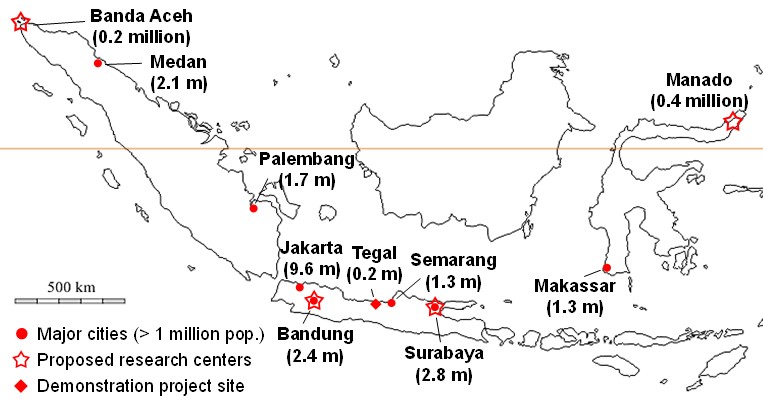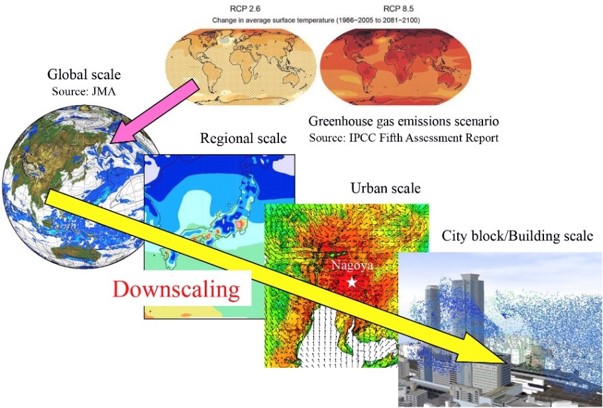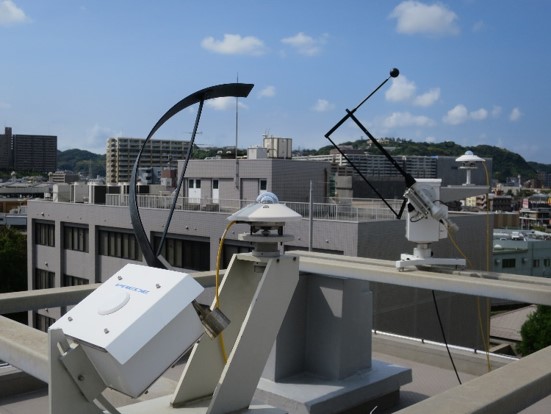1-1. Projection of future urban climates
Group leader: Associate Prof. Han Soo Lee, Hiroshima University
Activity Plan
•Collect and analyze past and present meteorological observation data of major cities/towns in Indonesia. By comparing with the collected data, verify the prediction accuracy of urban climate simulations, and modify the simulation model if necessary.
•Prepare or create various scenarios for conducting future projections of urban climate, such as climate change (carbon dioxide emissions) scenarios, population change scenarios, and energy use scenarios.
•Conduct the parametric analysis in which the future scenarios are systematically changed. Through the parametric analysis, assess the effect of each scenario on future urban climate.


Outputs
•Urban climates in major cities of Indonesia for 2030, in consideration of global warming and urban heat islands, are projected, and the simulation skills are transferred to the implementing agencies.
1-2. Development of standard weather data
Group leader: Prof. Hideyo Nimiya, Kagoshima University
Activity Plan
•Collect and analyze past and present meteorological observation data of major cities/towns in Indonesia (same as #1-1).
•Refine the present meteorological observation data and develop the present standard weather data for major cities/towns in Indonesia.
•Develop the future standard weather data for major cities/towns in Indonesia.

Outputs
•Standard weather data for present and future (2030) are developed in major cities of Indonesia, and the development skills are transferred to the implementing agencies.